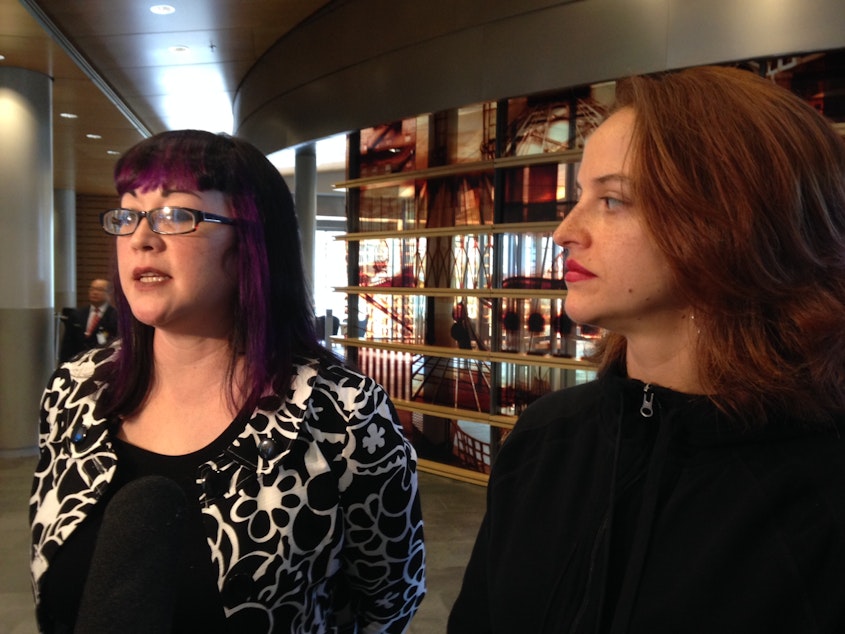$15 Minimum Wage Law May Face Ballot Challenge

On Monday, June 2, Seattle workers and politicians ate cake and danced in celebration of the city's new minimum wage law.
As the dance party ended, the law started to face pushback, although it’s not clear when an actual challenge will occur.
Angela Cough, owner of Flying Apron Bakery, a gluten-free and vegan bakery in Seattle's Fremont neighborhood, said Thursday she had just filed a ballot measure at City Hall on behalf of Forward Seattle.
“Forward Seattle, representing the local, independent business community, has filed a proposed charter amendment to establish a new minimum wage for the city of Seattle,” she said.
The measure would mandate a lower minimum wage increase, up to $12.50 an hour in six years. It wouldn’t count tips or benefits, or make distinctions based on big or small businesses.
Sponsored
“It’s exactly how it is now,” Cough said. “We’re just adding on essentially over the next five years probably $1 to $1.25 in excess of what the state-mandated wage would afford people.”
Cough said small businesses believe their concerns haven’t been heard during the minimum wage debate in Seattle. The biggest contributor to Forward Seattle is North Seattle businesswoman Faye Garneau, sponsor of last year’s initiative creating new city council districts.
Kathrina Tugadi is another supporter of the charter amendment. She owns Mr. Villa’s Mexican Restaurant and El Norte Lounge on Lake City Way. Tugadi said allowing small businesses to ramp up wages more slowly, as the new law provides, doesn't really work. She said if the Red Robin down the street from her restaurant starts paying higher wage, there will be pressure for her to raise wages too.
“Dishwashers all over the city make the same rate right now," she said. "In 2017, according to the mayor’s plan, if a larger business down the street from me is paying $15 in 2017 and I’m paying $13 it will be an unfair competitive advantage. I will have to raise my rates to attract labor. Two dollars an hour can’t be ignored."
David Rolf, SEIU 775 President and co-chair of the mayor’s Income Inequality Advisory Committee, issued a blistering response to the ballot measure:
Sponsored
“A fringe group of right-wing ideologues in the business community today showed that they will stop at nothing to prevent workers from earning a living wage. This is selfish, short-sighted, and stupid.”
Meanwhile, Seattle Mayor Ed Murray said the city’s new minimum wage law is reasonable, and warned that a business-friendly ballot measure could backfire. It could provoke a ballot initiative from the group 15Now in which the $15 minimum wage would take effect more quickly.
“What I worry about is that [Forward Seattle] will end up putting theirs on the ballot and that those people who want $15 now will put a ‘$15 immediately’ on the ballot, and based on the polling I see, 15 Now would win. And that would be incredibly harmful to those very businesses,” Murray said.
But it’s unclear whether this ballot showdown will actually occur. According to the City Attorney’s office, charter amendments filed by the people can only appear in odd-numbered years, making 2015 the earliest possible slot. Forward Seattle backers say their lawyer views it differently.
Meantime, 15Now supporters say they’ll decide soon whether to pursue their own ballot measure, or focus on raising the minimum wage in neighboring cities instead.

